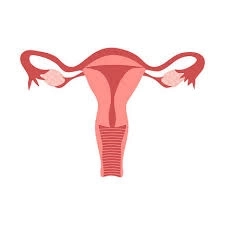
Everything You Need to Know About Irregular Menstrual Periods
Published on: 2025-06-14 | Written by: Dr. Asmaa Fathy, Consultant Obstetrician and Gynecologist
Irregular menstrual cycles are among the most common concerns faced by women at different life stages, especially during puberty or near menopause. A regular period is a sign of hormonal balance and reproductive health, while irregular periods may signal an underlying health issue that needs medical attention.
In this article, Dr. Asmaa Fathy explains the causes, symptoms, diagnosis, and treatment of irregular periods in detail.
✅ What Is Considered an Irregular Period?
A normal menstrual cycle occurs every 21 to 35 days and lasts between 2 to 7 days.
Your period is considered irregular if:
-
The time between periods varies significantly
-
The duration or amount of bleeding changes noticeably
-
You experience spotting or bleeding between cycles
-
You miss your period for more than two months without a clear reason
✅ Common Causes of Irregular Periods
According to Dr. Asmaa Fathy, several factors can lead to menstrual irregularities, including:
-
Hormonal imbalances (such as thyroid dysfunction or high prolactin)
-
Polycystic Ovary Syndrome (PCOS)
-
Chronic stress and psychological pressure
-
Obesity or extreme weight loss
-
Use of hormonal birth control methods
-
Uterine fibroids or polyps
-
Puberty or approaching menopause
-
Excessive physical activity or poor sleep
-
Nutritional deficiencies or anemia
✅ Warning Signs That May Require Medical Attention
-
Missing your period for several months
-
Heavy or prolonged menstrual bleeding
-
Spotting or bleeding between periods
-
Severe menstrual cramps or unusual pain
-
Acne or excessive hair growth
-
Mood swings or severe PMS symptoms
✅ When Should You See a Doctor?
Dr. Asmaa Fathy advises seeking medical help if you experience:
-
No period for more than 3 consecutive months
-
Unusually heavy or painful periods
-
Periods occurring less than every 21 days or more than every 35 days
-
Hormonal symptoms like hair loss or acne
-
Difficulty conceiving with irregular cycles
✅ Diagnosis of Irregular Periods
To determine the underlying cause, Dr. Asmaa Fathy may perform:
-
A full medical history and menstrual tracking
-
Pelvic examination
-
Blood tests (including thyroid function, prolactin, LH, FSH, and pregnancy tests)
-
Pelvic or transvaginal ultrasound
-
In some cases, MRI scans or hysteroscopy may be needed
✅ Treatment Options
Treatment depends on the underlying cause and may include:
???? Hormonal Therapy:
-
Birth control pills to regulate cycles
-
Treatment for thyroid or prolactin disorders
???? PCOS Management:
-
Weight loss and lifestyle changes
-
Medications to reduce insulin resistance
-
Ovulation induction if pregnancy is desired
???? Surgical Treatment:
-
For fibroids or polyps when necessary
???? Lifestyle Modifications:
-
Stress management
-
Improved sleep hygiene
-
Balanced nutrition
-
Regular moderate exercise
✅ Tips from Dr. Asmaa Fathy to Maintain a Regular Cycle
-
Keep track of your menstrual calendar
-
Maintain a healthy weight
-
Avoid extreme dieting
-
Stay physically active
-
Don’t ignore unusual changes—get checked early

